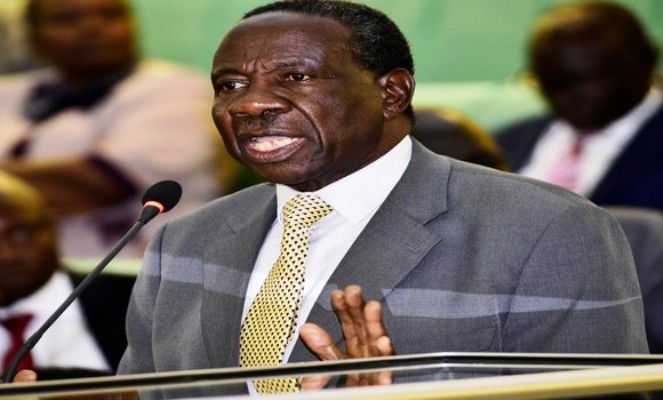Finance Minister, Matia Kasaija
Parliament Thursday approved two loan proposals by Government to borrow up to USD 600M (Shs2.22 trillion) from the International Monetary Fund (IMF) and Shs4.3 Trillion through domestic borrowing to finance Budget deficit for Financial Year 2020/21.
The Proposals were presented to Parliament by the Minister of Finance, Planning and Economic Development on October 21, 2020 and accordingly referred to the Committee on National Economy for consideration in line with Rule t75 (2) (b) of the Parliamentary Rules of Procedure.
According to the Committee on National Economy report on the approved borrowings, domestic borrowing will be done through issuance of Treasury Bills and Treasury Bonds.
“The Treasury Bills are shofter debt instruments with tenures of 91-day, 182-day and 364- day, while Treasury Bonds are long term debt instruments with maturity of more than a year. The tenure for long term instruments in Uganda ranges between 2 to 15 years, however the maturity of these instruments can extend to more than 15 years, with increased development of the domestic market,” the report reads, adding: “This implies that when most of the debt is secured through long term debt instruments, most of the domestic debt acquired shall mature between 2 years and 15 years or more depending on the development of the domestic market.
Borrowing domestically is likely to crowd out credit to the private sector. The Bank of Uganda and experts have severally warned Government against borrowing domestically.

It should be noted that issuance of short term debt increases the liquidity pressures on the budget in the short term, as well as the default risk as the debt must be repaid within a short timeframe. However, the long term domestic debt is associated with higher yield rates and less immediate liquidity pressures in the short term, although they are at a higher cost to the budget in the long term.”
It should be noted that Uganda’s total public debt stock (in nominal value) stood at Shs56.5 trillion (40.9 percent of GDP), as at end June 2020, the Bank of Uganda (BoU) Annual Report for Financial Year 2019/2020 released on October21 revealed. This represents an increase of 19.6 percent relative to June 2019. This means that Uganda’s total public debt will now surpass Shs60 trillion.
Parliament approved Shs45.49 trillion for expenditure during FY 2020/21 and the budget was to be financed through domestic revenues amounting to Shs33.07 trillion and external resources amounting to Shs12.42 trillion. However, following the performance of the economy in FY2019/20, that was associated with a lower growth rate and slower growth in revenues compared to the previous financial year, and the prolonged effect of the COVID-19 pandemic into the second quarter of FY 2020/21, the resource projections were revised downwards.
“The new resource projections reflect a growth rate of 20% from 27% in the approved budget mostly due to a projected decline in domestic resources from a growth rate of 19% to 100% in comparison to the FY 2019/20 outturn,” the Committee report says.
It adds that during the first quarter of FY 2020/21, the resource performed at 23% as domestic revenues realized 19% of the approved budget revenues while external resources performed at 23% on account of budget support loans that performed at 53% of the proved budget for the FY 2020/21.
It is also important to note that Parliament approved Supplementary Expenditure to the Budget for FY 2020/21 to a tune of Shs3.34 trillion under Supplementary Schedule 1 and 2 and the Addendum to Schedule 2, bringing the total revised budget to Shs48.83 trillion.
With the approved Supplementary Expenditure, and the need to service domestic debt obligations, the resource envelope is projected to leave a funding gap on the revised budget.
Against the above background, the Ministry of Finance, Planning and Economic Development proposed to finance the deficit through budget cuts/efficiency gains amounting to Shs1.42 trillion; and borrowing externally and from the domestic market to a tune of Shs6.53 trillion.







